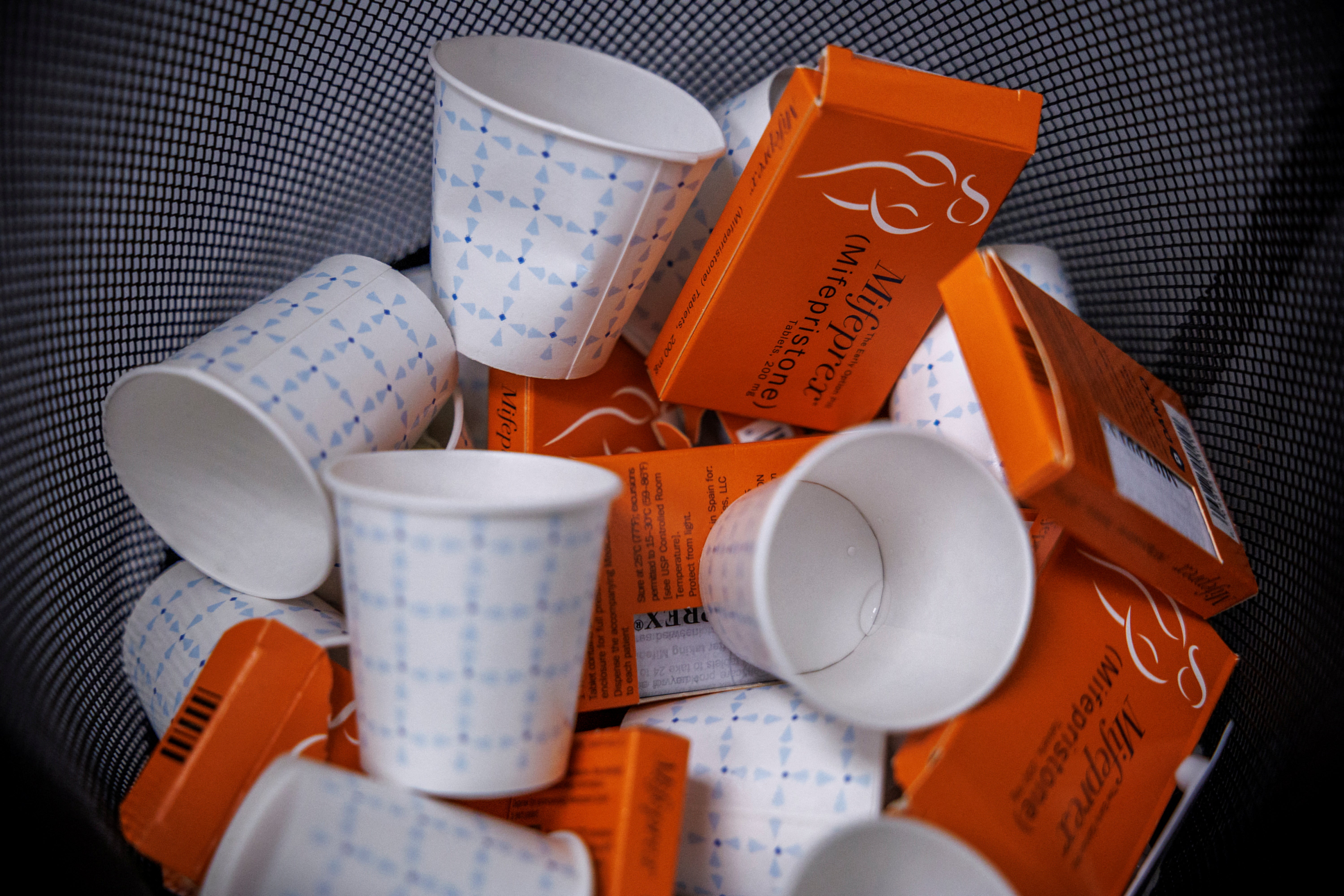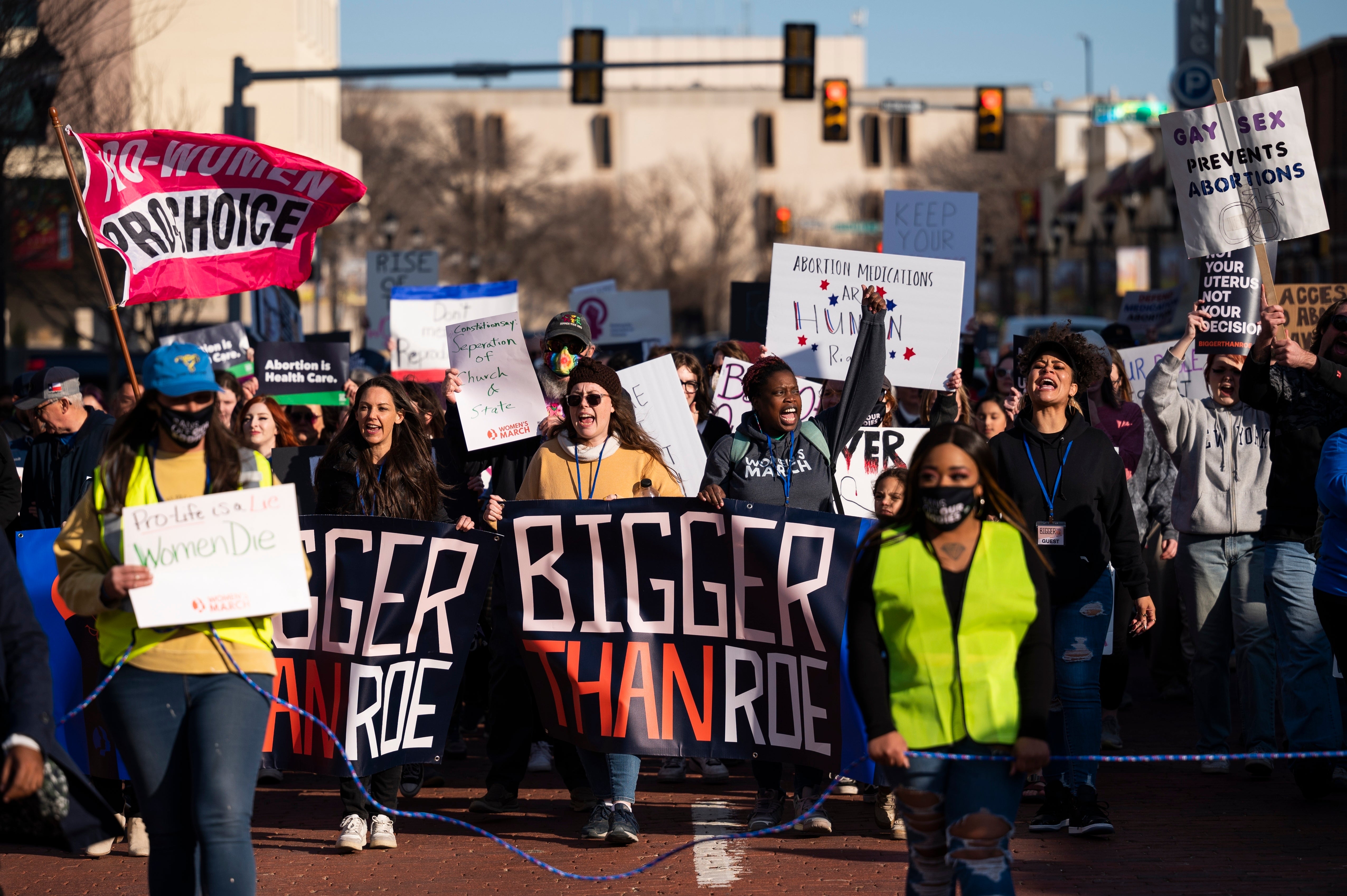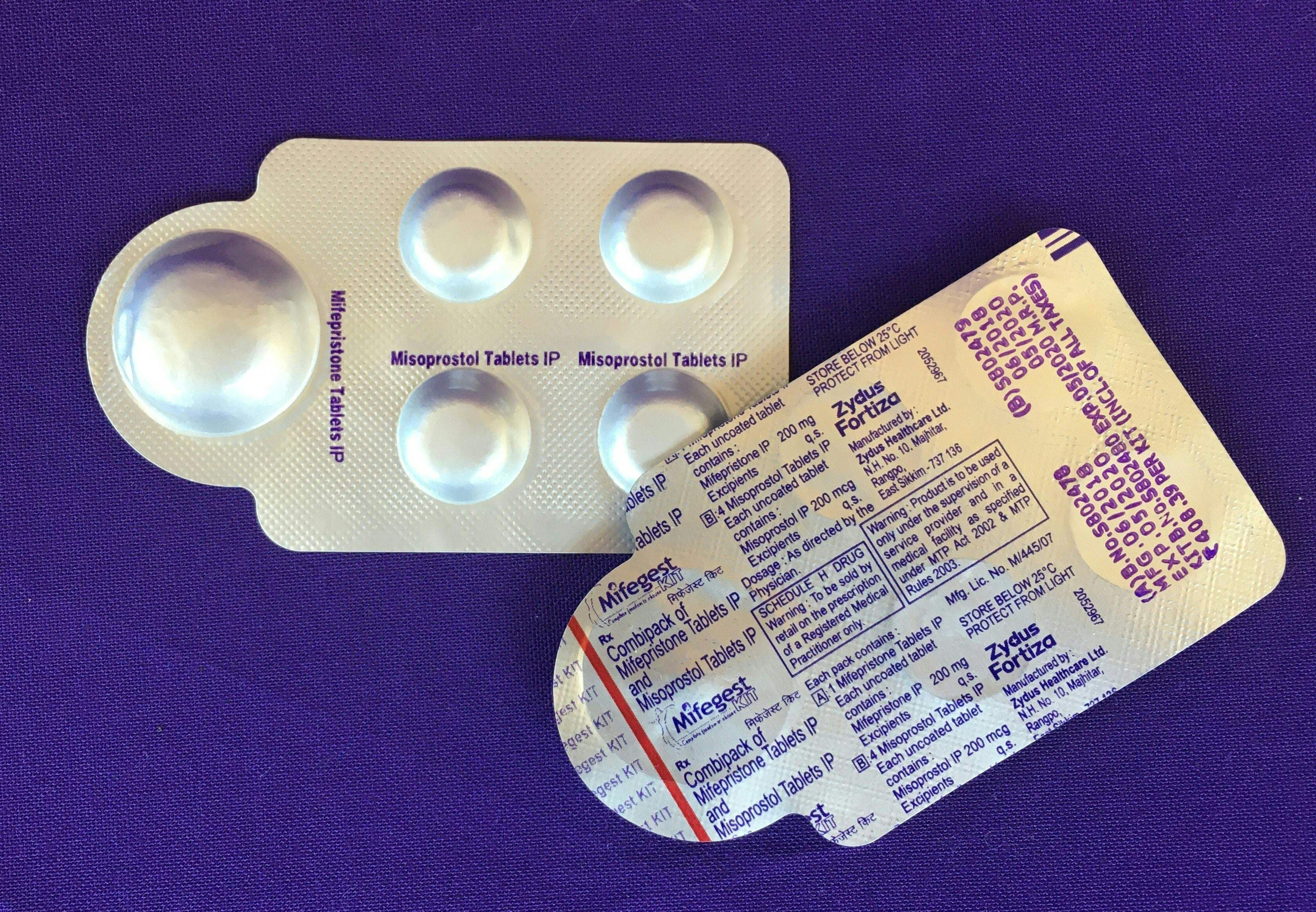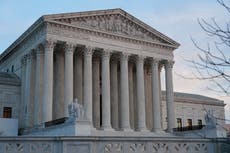How a Trump-appointed judge could revoke access to a commonly used abortion drug
Right-wing legal groups are mounting a major legal challenge against the FDA that could have enormous consequences for abortion access, Alex Woodward reports


The future of abortion access for the most common form of abortion care is in the hands of a federal judge appointed by Donald Trump.
A right-wing group that has supported anti-abortion litigation across the US, including the landmark US Supreme Court case that overturned Roe v Wade last year, is challenging the US Food and Drug Administration to reverse its approval of a commonly used abortion drug.
An imminent decision from US District Judge Matthew Kacsmaryk that would block access to mifepristone, even temporarily, could significantly disrupt access to medication abortion nationwide.
A coalition of anti-abortion advocates under the Alliance for Hippocratic Medicine, with support from dozens of Republican elected officials and the influential right-wing legal group Alliance for Defending Freedom, asked the judge for a preliminary injunction to take mifepristone off the market. The lawsuit also challenges recent federal actions to make the drug available through telemedicine prescriptions that patients can receive by mail or pick up at a pharmacy.
“There are now partisan and political attacks attempting to question the legitimacy of a group of scientists and doctors who have studied the significance of this drug,” Vice President Kamala Harris said during a White House meeting on reproductive health on 24 February. “This is not just an attack on women’s fundamental freedoms, it is an attack on the very foundation of our public health system.”
Approved by the FDA more than two decades ago, mifepristone is one of a two-drug protocol for medication abortion, a procedure that accounts for more than half of all abortions nationwide.
It is also commonly used to treat miscarriages. Mifepristone and misoprostol are the only drugs recommended by the American College of Obstetricians and Gynecologists to treat an early pregnancy loss.
The Alliance Defending Freedom filed a lawsuit in Amarillo, Texas on 18 November against the FDA claiming that the federal agency does not have authority to approve the drug, which the plaintiffs claim is “dangerous”.
A filing from the plaintiffs in Alliance of Hippocratic Medicine v FDA on 24 February claims “unlawful actions to approve chemical abortion drugs and remove necessary safeguards have harmed countless women and girls.”
Mifepristone was approved for use by the FDA in most cases up to 10 weeks of pregnancy in 2000. Multiple studies have determined they are overwhelmingly safe and effective, and have been used in roughly 54 per cent of all abortions. A vast majority of abortions occur within the first nine weeks. In 2019, nearly 93 per cent of all abortions were performed before the 13th week.

In 2021, the FDA permanently lifted the in-person requirement for medication abortion prescriptions, allowing patients to access the drugs via telehealth appointments and online pharmacies so patients can take the drugs from the comfort of their homes.
After the US Supreme Court’s decision in Dobbs v Jackson Women’s Health Organization to strike down the constitutional right to abortion care, anti-abortion state legislators filed dozens of bills to restrict the availability and distribution of abortion drugs, or have sought to ban them altogether.
A group of 22 Republican attorneys general and 67 congressional Republicans have also joined the effort to revoke the FDA’s approval of mifepristone.
Meanwhile, a separate coalition of attorneys general are suing President Joe Biden’s administration to loosen restrictions on mifepristone, setting up the possibility of conflicting rulings on the same drug, and underscoring the fractured state of abortion care in the wake of the Dobbs decision.
Nineteen states have restricted access to the drug, but a ruling from Judge Kacsmaryk could jeopardise access in the 31 states where medication abortion is already legally protected, or could reverse federal guidance and force patients in protected states to receive the drug only during in-person visits.
In either case, a ruling against the FDA would have a dramatic impact on abortion care in a post-Dobbs America where access to care already is fragmented by patchwork, state-by-state regulations or criminal statutes.
More than a dozen states have effectively outlawed abortion care for nearly all pregnancies. Such disparities in abortion care – and whether a patient or provider is prosecuted or protected with resources from the state – depends largely on where one lives.

Skye Perryman, president and CEO of Democracy Forward and former chief legal officer and general counsel for the American College of Obstetricians and Gynecologists, said the Supreme Court’s decision in the Dobbs case opened the door for a wave of legal challenges intended to undermine federal protections, a campaign from “special interests and extreme right-wing attorneys general to deprive people of federal protections, including protections that continue to exist post Dobbs.”
“We are seeing a mosaic of laws and policies posed by these extreme forces that are seeking to undermine federal protections, including access to medication abortion,” she told The Independent in a phone interview last month.
“The Dobbs decision has been devastating to individuals and communities to millions of Americans throughout the country in depriving people of a constitutional right,” she told The Independent. “But there do remain other federal protections that protect people’s access to abortion in emergency situations and with respect to the medication they use. And it’s unfortunate that we’re seeing in the post-Dobbs landscape the same forces that were active in seeking to overturn a constitutional right now seeking to overturn other remaining federal protections.”
That movement is “creating havoc for medical professionals, the healthcare industry, as well as the patients and communities across the country” and “putting providers and patients in a very difficult situation where it’s hard to navigate,” she added.
“It’s increasingly hard for people or impossible for people to access care that we know is essential and that we know is needed,” she said. “Medical professionals who have dedicated their lives to being able to care for others are now unable to provide essential care consistent with their medical judgment, consistent with the needs of people, because of this extremism.”
The FDA responded to the lawsuit in a filing last month noting that an injunction against the medication “would upend the status quo and the reliance interests of patients and doctors who depend on mifepristone, as well as businesses involved with mifepristone distribution.”
Associate Attorney General Vanita Gupta, who chairs a reproductive health task force, said that a reversal in this case would cause “severe harm to all who rely on the medication.”
A coalition of state attorneys general led by New York’s Letitia James also warned in a filing that a reversal of the FDA’s approval would have “devastating consequences” for patients across the US, regardless of their home state’s protections.

The federal agency also said such a ruling would set a dangerous precedent by signaling the vulnerability of scientists and researchers who closely study and approve other drugs that millions of Americans depend on.
“If longstanding FDA drug approvals were so easily enjoined, even decades after being issued, pharmaceutical companies would be unable to confidently rely on FDA approval decisions to develop the pharmaceutical-drug infrastructure that Americans depend on to treat a variety of health conditions,” according to the FDA.
“Those who would attack this process and the ability of the FDA to make these decisions ought to look at their own medicine cabinets to figure out whether they’re prepared to say that those medications that they need … should no longer be available to them, because that is what they are talking about,” Vice President Harris said from the White House on 24 February.
Abortion rights advocates have accused their opponents of forum shopping by sending their challenge to a court with a judge who would be most likely to side with the plaintiffs.
Before he was confirmed to federal court in Amarillo, Judge Kacsmaryk was a deputy general counsel at the First Liberty Institute, where he worked on“religious liberty litigation in federal courts and amicus briefs in the US Supreme Court,” according to his White House biography.
An appeal in the case would then land in the conservative Fifth Circuit Court of Appeals in Louisiana, teeing up another Supreme Court challenge to abortion care less than a year after the high court’s conservative majority overturned constitutional protections affirmed by the 50-year-old decision in Roe v Wade.
“This is all about hot-wiring the system in order to produce an anti-abortion ruling — which is what his whole career has been about,” Senator Ron Wyden told Rolling Stone. “If he wanted to be a legislator, he should have run for office.”
In the wake of the Dobbs decision, virtual and mobile clinics, mutual aid organisers, abortion rights advocates and overseas aid groups mobilised to help connect patients to abortion drugs that they otherwise could not legally obtain.
At least 20,000 packets of abortion pills were reportedly shipped to people across the US in the six months after the Dobbs decision.
Meanwhile, six leading reproductive rights organisations established the Abortion Defense Network to connect patients and providers “facing legal threats related to abortion care with trusted attorneys who provide legal advice and representation in civil and criminal proceedings.”
“Politicians who don’t respect the dignity of pregnant people will stop at nothing to advance their anti-abortion agenda, including using the legal system as a weapon against people who provide and support abortion care,” Cassie Ehrenberg, senior counsel for pro bono initiatives at the Lawyering Project, said in a statement.
Right-wing legal groups and Republican officials advancing policies to curtail abortion rights also are advancing election rules aimed at voting rights and consolidating electoral power, measures that amount to an “extremism that is seeking to undermine democracy and undermine what people in this country want for themselves, for their children, for their communities,” Ms Perryman told The Independent.
This story was originally published on 24 February
Join our commenting forum
Join thought-provoking conversations, follow other Independent readers and see their replies
Comments



Bookmark popover
Removed from bookmarks